Overview
Name: Trường Đại học Thủy lợi,University of Water Resources
Location: Located in Hanoi, the capital of Vietnam, the specific address is No. 175, Jinxing Township, Dongying District, Hanoi City.
Introduction: Hanoi University of Water Resources is a higher education institution with water conservancy, civil engineering, environmental engineering and management as its main directions. The school is committed to cultivating water conservancy and civil engineering talents with professional knowledge and practical ability, and contributing to Vietnam's water conservancy construction and environmental protection. The school enjoys a good reputation in the fields of water conservancy, civil engineering, environmental engineering, etc.
Campus and number of students
Campus: The main campus of the school is located in Dongying District, Hanoi City. The campus environment is beautiful and the facilities are complete, including modern teaching buildings, laboratories, libraries, computer centers, etc.
Number of students: The school currently has about 15,000 students, including undergraduates, masters and doctoral students.
Educational philosophy
The school adheres to the educational philosophy of "science, innovation, and practice", focuses on cultivating students' practical operation ability and innovation ability, encourages students to actively participate in social practice activities and scientific research projects, and improves their comprehensive quality.
Disciplines and departments
Hanoi University of Water Resources has several colleges and departments, covering the following major disciplines:
College of Water Conservancy Engineering: Research on water conservancy engineering design, construction and management, and train water conservancy engineers.
College of Civil Engineering: Research on civil engineering design, construction and management, and train civil engineers.
College of Environmental Engineering: Research on environmental monitoring, pollution control and environmental management, and train environmental engineers.
College of Water Resources Management: Research on water resources planning, management and protection, and train water resources management talents.
College of Architectural Engineering: Research on building structure design, construction and management, and train architectural engineers.
College of Transportation Engineering: Research on transportation planning, design and management, and train transportation engineers.
College of Information Technology: Research on the application of information technology in water conservancy and civil engineering, and train information technology professionals.
College of Economics and Management: Research on the economic management of water conservancy and civil engineering projects, and train economic and management talents.
Ranking
Hanoi University of Water Resources enjoys a high reputation in the field of water conservancy and civil engineering education in Vietnam, and has been rated as one of the top universities in Vietnam in related fields many times. Although international rankings may not be easy to obtain, it is in a leading position among similar domestic institutions.
Cost
Tuition fees: Tuition fees for local Vietnamese students are about 2 million to 4 million VND (about RMB 600 to 1,200) per semester. The tuition fees for international students will be higher, and the specific amount needs to be consulted by the school officials.
Other expenses: including accommodation fees, textbook fees, living expenses, etc. The specific fees vary depending on personal circumstances.
Campus environment
Facilities: The school has modern teaching buildings, laboratories, libraries, computer centers, sports venues, etc. There are also multiple learning and leisure areas on campus, providing a good learning and living environment.
Accommodation: The school provides dormitories for use by out-of-town and international students. The dormitory conditions are good and equipped with basic living facilities.
Notes
Language requirements: Some courses may be taught in English, but most courses are still taught in Vietnamese. International students need to have a certain foundation in Vietnamese.
Application materials: Prepare complete application documents, including transcripts, recommendation letters, personal statements, etc.
Visa and insurance: Make sure to complete the visa procedures required to study in Vietnam and purchase appropriate insurance.
Cultural adaptation: Understand Vietnam's cultural customs to better integrate into local life.
-
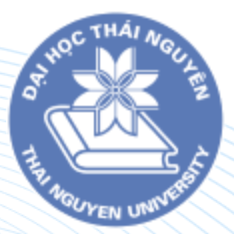
Đại học Thái Nguyên,Thai Nguyen University
-

Đại học Quốc gia Hà Nội,Vietnam National University, Hanoi
-
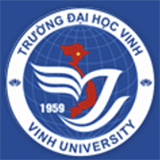
Trường Đại học Vinh,Vinh University
-
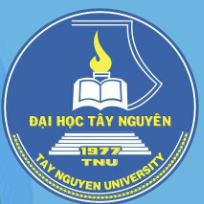
Trường Đại học Tây Nguyên,Tay Nguyen University
-
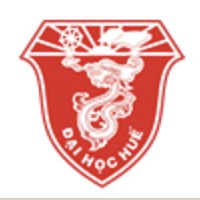
Đại học Huế,Hue University
-

Đại học Quốc gia Thành phố Hồ Chí Minh,Ho Chi Minh City National University
-

Trường Đại học Cần Thơ,Can Tho University,CTU
-
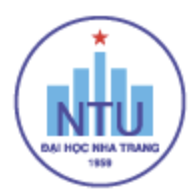
Trường Đại học Nha Trang,Nha Trang University
-
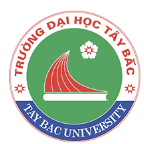
Trường Đại học Tây Bắc, Tay Bac University
-

Trường Đại học Công nghệ Giao thông Vận tải,University of Transport Technology
-

Mesoamerican University
-

Istmo University
-

Mariano Galvez University of Guatemala
-

Regional University of Guatemala
-

Galileo University
-

Francisco Marroquín University
-

Rafael Landívar University
-

University of the Valley of Guatemala
-

University of San Carlos of Guatemala
-

Technological Institute of Tlaxcala Plateau
-

Golfo University
-

Technological University of South Sonora
-

Technological University of Huejotzingo
-

Tizimín Institute of Technology
-

Chilpancingo Institute of Technology

